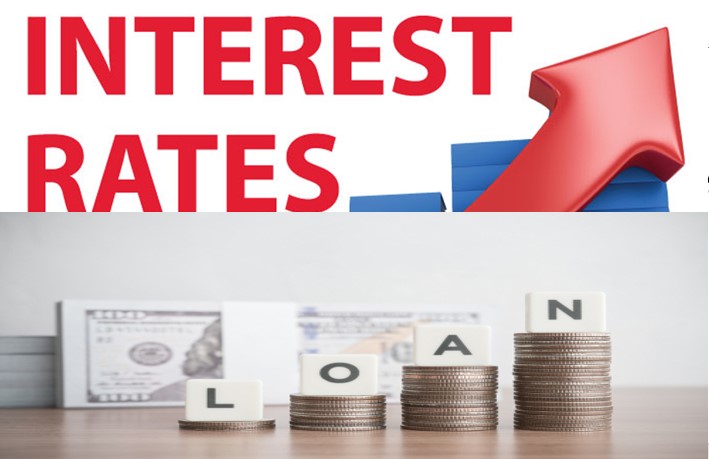
There are many factors to consider when deciding when to file for bankruptcies. A good idea is to speak with an attorney before you decide if bankruptcy is for you. Some attorneys offer initial consultations for free. Some attorneys charge a small fee. The bankruptcy attorney should be able to tell you more about the process and what to expect from it. This is essential as it will help to clarify your rights. It is important that you understand the costs involved in filing bankruptcy.
Getting credit counseling
Credit counseling is required before you can file bankruptcy. This is to help you decide if you should file bankruptcy or follow an informal repayment plan. This counseling is essential, even if your debts seem unfair or high. This includes credit card debts that have ballooned in high interest rates, medical emergency bills, or deficiency judgments arising from the sale of repossessed automobiles.
Credit counseling sessions last approximately one to two hours. A counselor will review your financial situation and make recommendations. Although you don't have the obligation to follow these recommendations, it may help you avoid bankruptcy. In most cases, the counseling agency will waive any fee that you are unable pay.
Bankruptcy filing
Although filing bankruptcy can offer a chance for many struggling families to save their lives, it's also a delicate process that must be done with care. It is important to understand what bankruptcy means and how you can prepare. Be prepared for a legal as well as emotional battle. Before you file for bankruptcy, it is important to have a budget. Then, you can carefully compare the bankruptcy process with the options available to you.

In most cases, bankruptcy is necessary if you cannot pay your debts in full. Your assets and debts will all affect whether you have to file bankruptcy.
Prices
The cost of filing for bankruptcy varies based on a few factors, including the complexity of your case and where you live. The amount of money charged also depends on the reputation and experience of your bankruptcy attorney. Bankruptcy filing costs can often be prohibitively high and most consumers find it difficult to afford. Low-income filers can still make the process affordable. If you are unable to afford attorney fees, there are ways to save money.
The biggest cost of bankruptcy is the damage it can do to your credit. Filing for bankruptcy is a major red flag to lenders. Lenders will regard you as a high threat and be cautious about lending money to you. This will limit your options for credit cards or loans with poor credit ratings, which typically come with very high interest rate.
Automatic stay after filing for bankruptcies
By filing a motion with a court, a creditor can ask for relief from the automatic stay following filing bankruptcy. The bankruptcy judge must grant this request. This allows the creditor the right to continue collection against the debtor. This process can be complex and you'd be wise to speak with an attorney.
There are many factors that affect the length of an automatic stay, such as whether bankruptcy proceedings have been filed in the past. In some cases, the stay is limited to 30 day. It can also be lifted completely by a creditor who files a motion to lift it before the bankruptcy case is closed. These cases require the creditor to prove that the stay is affecting their business and that they are unable to pay the costs if it continues.

Reaffirming debt
There are many options when it comes to filing bankruptcy. Some of these options require you to reaffirm your debt. You may be personally liable for the debt if you reaffirm it after filing bankruptcy. You could be held liable for $20,000 if your car is repossessed. That makes it important to make your payments on time, no matter what.
Reaffirming your bankruptcy debt should only be done if it is absolutely necessary. Reaffirming any debt you have will make you personally responsible for it. It will also prevent your bankruptcy discharge. You should carefully review your options and consider the consequences.
FAQ
What is personal finance?
Personal finance refers to managing your finances in order to achieve your personal and professional goals. It is about understanding your finances, knowing your budget, and balancing your desires against your needs.
You can become financially independent by mastering these skills. That means you no longer have to depend on anyone for financial support. You're free from worrying about paying rent, utilities, and other bills every month.
Not only will it help you to get ahead, but also how to manage your money. You'll be happier all around. Feeling good about your finances will make you happier, more productive, and allow you to enjoy your life more.
Who cares about personal finances? Everyone does! Personal finance is a very popular topic today. Google Trends reports that the number of searches for "personal financial" has increased by 1,600% since 2004.
People today use their smartphones to track their budgets, compare prices, build wealth, and more. You can find blogs about investing here, as well as videos and podcasts about personal finance.
Bankrate.com estimates that Americans spend on average 4 hours per day viewing TV, listening to music and playing video games, as well reading books and talking with friends. Only two hours are left each day to do the rest of what is important.
You'll be able take advantage of your time when you understand personal finance.
How much debt can you take on?
It is important to remember that too much money can be dangerous. You'll eventually run out cash if you spend more money than you earn. It takes time for savings growth to take place. So when you find yourself running low on funds, make sure you cut back on spending.
But how much is too much? While there is no one right answer, the general rule of thumb is to live within 10% your income. Even after years of saving, this will ensure you won't go broke.
This means that you shouldn't spend more money than $10,000 a year if your income is $10,000. Spend less than $2,000 per monthly if you earn $20,000 a year. You shouldn't spend more that $5,000 per month if your monthly income is $50,000
The key here is to pay off debts as quickly as possible. This includes student loans and credit card bills. When these are paid off you'll have money left to save.
You should consider where you plan to put your excess income. You could lose your money if you invest in stocks or bonds. However, if the money is put into savings accounts, it will compound over time.
Let's suppose, for instance, that you put aside $100 every week to save. In five years, this would add up to $500. After six years, you would have $1,000 saved. In eight years, your savings would be close to $3,000 In ten years you would have $13,000 in savings.
At the end of 15 years, you'll have nearly $40,000 in savings. This is quite remarkable. If you had made the same investment in the stock markets during the same time, you would have earned interest. You'd have more than $57,000 instead of $40,000
You need to be able to manage your finances well. A poor financial management system can lead to you spending more than you intended.
Why is personal finance so important?
A key skill to any success is personal financial management. In a world of tight money, we are often faced with difficult decisions about how much to spend.
Why then do we keep putting off saving money. Is there nothing better to spend our time and energy on?
Yes and no. Yes, because most people feel guilty when they save money. Because the more money you earn the greater the opportunities to invest.
Focusing on the big picture will help you justify spending your money.
Financial success requires you to manage your emotions. Focusing on the negative aspects in your life will make it difficult to think positive thoughts.
Unrealistic expectations may also be a factor in how much you will end up with. This is because your financial management skills are not up to par.
Once you've mastered these skills, you'll be ready to tackle the next step - learning how to budget.
Budgeting is the practice of setting aside some of your monthly income for future expenses. By planning, you can avoid making unnecessary purchases and ensure that you have sufficient funds to cover your bills.
Once you have mastered the art of allocating your resources efficiently, you can look forward towards a brighter financial tomorrow.
Which side hustles have the highest potential to be profitable?
A side hustle is an industry term for any additional income streams that supplement your main source of revenue.
Side hustles are important because they make it possible to earn extra money for fun activities as well as bills.
Side hustles are a way to make more money, save time, and increase your earning power.
There are two types. Side hustles that are passive include side businesses such as blogging, e-commerce and freelancing. Some examples of active side hustles include dog walking, tutoring and selling items on eBay.
Side hustles that are right for you fit in your daily life. If you love working out, consider starting a fitness business. If you love to spend time outdoors, consider becoming an independent landscaper.
Side hustles can be found everywhere. Look for opportunities where you already spend time -- whether it's volunteering or taking classes.
Why not start your own graphic design company? Maybe you're a writer and want to become a ghostwriter.
Do your research before starting any side-business. So when an opportunity presents itself, you will be prepared to take it.
Side hustles can't be just about making a living. Side hustles are about creating wealth and freedom.
With so many options to make money, there is no reason to stop starting one.
What is the fastest way to make money on a side hustle?
To make money quickly, you must do more than just create a product/service that solves a problem.
You need to be able to make yourself an authority in any niche you choose. It's important to have a strong online reputation.
Helping people solve problems is the best way build a reputation. You need to think about how you can add value to your community.
After answering that question, it's easy to identify the areas in which you are most qualified to work. Online earning money is possible in many ways. However, these opportunities are often highly competitive.
However, if you look closely you'll see two major side hustles. One involves selling products directly to customers and the other is offering consulting services.
Each approach has its advantages and disadvantages. Selling products or services offers instant gratification, as once your product is shipped or your service is delivered, you will receive payment immediately.
However, you may not achieve the level of success that you desire unless your time is spent building relationships with potential customers. In addition, the competition for these kinds of gigs is fierce.
Consulting allows you to grow and manage your business without the need to ship products or provide services. But, it takes longer to become an expert in your chosen field.
You must learn to identify the right clients in order to be successful at each option. It will take some trial-and-error. But, in the end, it pays big.
What is the easiest way to make passive income?
There are many ways to make money online. However, most of these require more effort and time than you might think. How do you find a way to earn more money?
The solution is to find what you enjoy, blogging, writing or selling. You can then monetize your passion.
For example, let's say you enjoy creating blog posts. You can start a blog that shares useful information about topics in your niche. When readers click on the links in those articles, they can sign up for your emails or follow you via social media.
This is called affiliate marketing, and there are plenty of resources to help you get started. Here are some examples of 101 affiliate marketing tools, tips & resources.
You could also consider starting a blog as another form of passive income. Again, you will need to find a topic which you love teaching. Once you have established your website, you can make it a monetizable resource by selling ebooks, courses, and videos.
There are many online ways to make money, but the easiest are often the best. You can make money online by building websites and blogs that offer useful information.
Once you've built your website, promote it through social media sites like Facebook, Twitter, LinkedIn, Pinterest, Instagram, YouTube and more. This is known as content marketing and it's a great way to drive traffic back to your site.
Statistics
- Shares of Six Flags Entertainment Corp. dove 4.7% in premarket trading Thursday, after the theme park operator reported third-quarter profit and r... (marketwatch.com)
- Etsy boasted about 96 million active buyers and grossed over $13.5 billion in merchandise sales in 2021, according to data from Statista. (nerdwallet.com)
- As mortgage rates dip below 7%, ‘millennials should jump at a 6% mortgage like bears grabbing for honey' New homeowners and renters bear the brunt of October inflation — they're cutting back on eating out, entertainment and vacations to beat rising costs (marketwatch.com)
- According to the company's website, people often earn $25 to $45 daily. (nerdwallet.com)
- These websites say they will pay you up to 92% of the card's value. (nerdwallet.com)
External Links
How To
How to Make Money Online
Today's methods of making money online are very different from those used ten years ago. The way you invest your money is also changing. There are many ways to earn passive income, but most require a lot of upfront investment. Some methods are easier than other. Before you start investing your hard-earned money in any endeavor, you must consider these important points.
-
Find out which type of investor you are. If you're looking to make quick bucks, you might find yourself attracted to programs like PTC sites (Pay per click), where you get paid for simply clicking ads. However, if long-term earning potential is more important to you, you might consider affiliate marketing opportunities.
-
Do your research. Before you make a commitment to any program, do your research. Review, testimonials and past performance records are all good places to start. You don't want your time or energy wasted only to discover that the product doesn’t work.
-
Start small. Do not rush to tackle a huge project. Instead, start off by building something simple first. This will help to you get started and allow you to decide if this type business is right for your needs. When you feel confident, expand your efforts and take on bigger projects.
-
Get started now! It's never too early to begin making money online. Even if you have been working full-time for years you still have time to build a strong portfolio of niche websites. You just need a good idea, and some determination. Now is the time to get started!